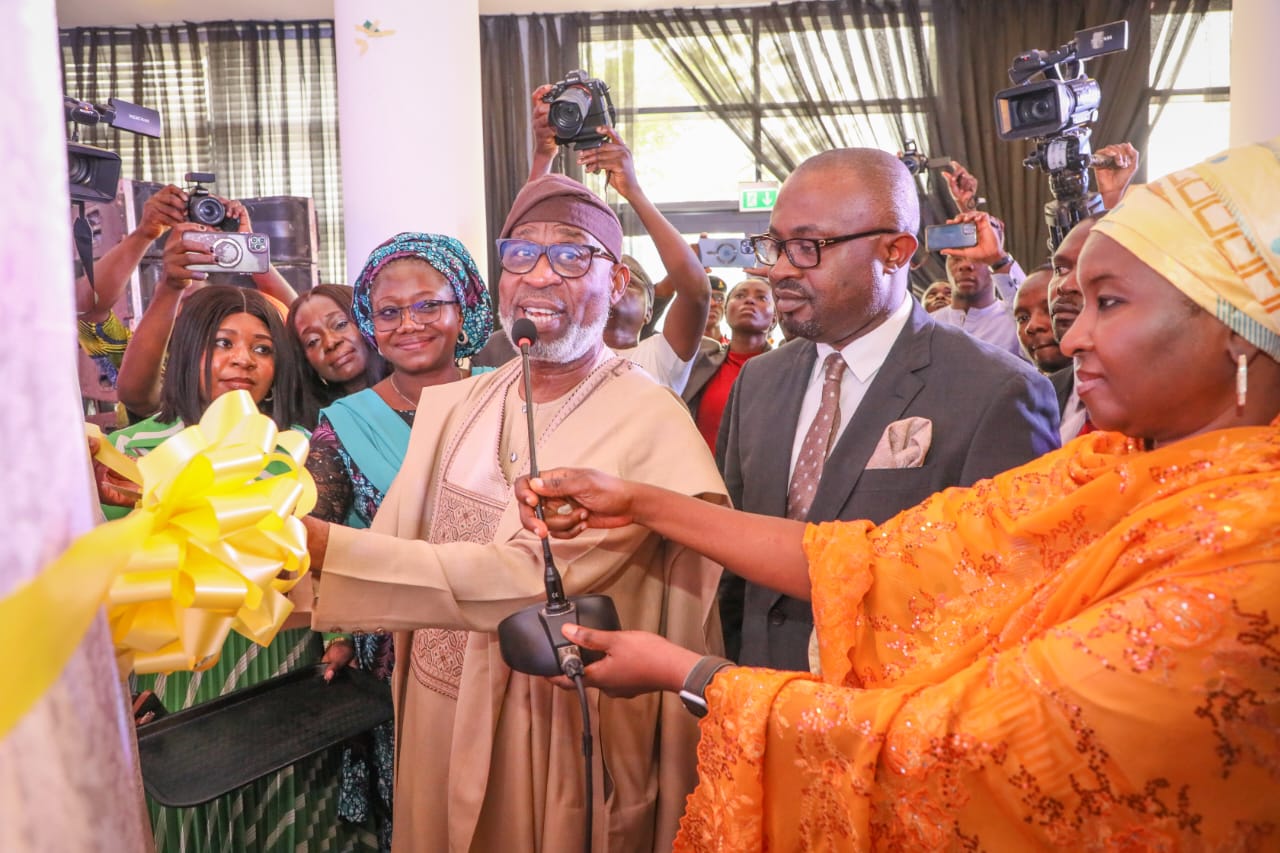BY LERATO MPHOLO
In the bustling streets of Lagos, Nigeria, the impact of digital transformation is palpable. From small businesses using mobile payment solutions to drivers using maps to find their way in the rush of the city, the adoption of digital technologies is changing the way Nigerians live, work, and interact. The telecommunications sector is at the heart of this transformation, which has expectedly emerged as a key driver of Nigeria’s economic growth.
The mobile sector’s contribution to Nigeria’s economy cannot be overstated. According to the federal ministry of communications, innovation and digital economy (FMCIDE), the mobile telecommunications sector accounted for 13.5 percent of the total gross domestic product (GDP) in 2023. This includes not only the sector’s direct value-added but also its impact on enhancing the productivity of other sectors. In total, the sector’s contribution to GDP is estimated at a staggering N33 trillion, with tax revenue contributions of N2.4 trillion.
“High-speed connectivity is the bedrock of any digital nation, and the Nigerian government recognises the mobile industry’s role in laying key foundations on which digital transformation is built. Future policies should be geared towards reducing the cost and complexity of infrastructure rollout to encourage investment and boost the adoption of mobile broadband,” says Angela Wamola, head of sub-Saharan Africa at the GSMA, during a recent stakeholders meeting in Abuja as she referred to the latest GSMA digital economy report.
Advertisement
“The impact of such actions would go far beyond mobile, driving productivity gains across the economy and creating millions of new jobs in Nigeria. To unlock these economic opportunities, connectivity and mobile financial services are crucial foundations,” she added.
Mobile technology as a key economy driver
One of the key ways the mobile sector drives economic growth is through its impact on productivity. Digital technologies have been shown to enhance productivity by enabling businesses to streamline processes, access new markets, and improve customer service. Globally, for example, in the agricultural sector, mobile apps that provide farmers with real-time market information have helped to improve crop yields and reduce post-harvest losses. Similarly, digital technologies such as robotics and automation have led to cost savings and improved efficiency in the manufacturing sector.
Advertisement
In Nigeria, another way in which the mobile sector is driving economic growth is through job creation. The adoption of digital technologies has created new employment opportunities, particularly in the ICT sector. According to the National Bureau of Statistics, the ICT sector employed over 14 million people in 2023, accounting for 9.2 percent of total employment in Nigeria. This represents a significant increase from previous years and highlights the sector’s role as a key driver of job creation in the country.
The industry, including mobile network operators, internet service providers (ISPs), and telecommunications hardware, is also driving many activities in every other sector of the economy. Regarding contribution, the closest subsector to telecommunications in the ICT sector was broadcasting, which added 1.68 percent according to the National Bureau of Statistics (NBS) when presenting the 2023 Q4 ICT contribution to Nigeria’s real GDP.
Furthermore, the mobile sector also contributes to increased tax revenues for the Nigerian government. As stated above, the sector contributed significantly in tax revenues in 2023, representing a significant source of revenue for the government. This revenue is critical for funding essential services such as healthcare, education, and infrastructure development, which are crucial for Nigeria’s long-term economic development. The industry supports the country’s drive to effectively diversify for economic growth and tax generation.
The unpredictable cost of operating
Advertisement
Despite the mobile sector’s significant contributions to Nigeria’s economy, its resilience is being challenged significantly. This is due to a significant increase in operating costs driven by the devaluation of the Naira, escalating energy costs, and soaring inflation. The high cost of building and operating mobile networks, particularly due to difficulties in obtaining rights of way (RoW) from state authorities, slows down investment in the sector, impacting service delivery to consumers. These networks are an essential component of all modern communications networks and form an integral part of mobile networks worldwide. They provide high-capacity links that connect sites in a mobile network and carry traffic between major nodes. As the number of subscribers increases and the amount of data traffic that the network carries grows, the role of these fibre networks becomes more important.
The construction of fibre networks for a mobile service provider usually occurs along existing transport or other infrastructure corridors. These are typically a combination of roads, pipelines and electricity transmission networks. In Nigeria, mobile service providers are required to obtain permission from one or more government authorities to build networks, which charge a fee for issuing the RoW. Although a national framework setting these fees has been agreed upon, in practice, they are set by individual authorities at the state level and, in some cases, also at lower government levels. As a result, the total RoW fees that service providers incur when building fibre networks can be high and vary considerably, depending on where the network is located.
As of 2023, the most expensive RoW, in Ebonyi state, was 69 times more expensive than the price of RoW in the States with the lowest fees, which is Ekiti. This has resulted in high capital expenditure (CAPEX) for service providers, impacting their ability to expand their networks and improve service quality.
Additionally, the mobile sector faces challenges such as currency depreciation, high levels of tax, and regulatory fees, which can impact their financial performance. For example, the recent depreciation of the Naira has increased the cost of importing network equipment, while high tax rates and regulatory fees can pressure service providers’ margins.
Advertisement
Financial sustainability and operational cost management
Both wholesale and retail mobile tariffs are constrained by regulation. In the mobile sector globally, it is not standard practice to regulate retail tariffs. This is because the level of competition and the dynamic nature of the market mean that prices are determined by market forces. In a low-inflation environment, cost-based and/or price-cap-regulated rates are not likely to change dramatically over time. However, when the cost of key inputs such as fuel, salaries, and externally purchased items such as network equipment changes significantly from one period to the next, the cost of delivering mobile services will also change. If regulated tariffs do not reflect these changes, the industry’s financial sustainability will likely be threatened.
Advertisement
Removing retail tariff price control regulations and focusing tariff regulation on wholesale services such as interconnection is recommended to support the long-term financial sustainability of the industry. In the interim, if retail price controls are retained, there should be: (a) periodic tariff reviews, ensuring assessment of costs of service provision, to allow for adjustments to reflect the changing cost of inputs into the businesses and facilitate investment; and (b) the introduction of a more pro-competition tariff regulation where upper and lower price bands set by NCC, which allows service providers to launch services without prior NCC tariff approval, provided tariffs are within such bands; This would allow for some adjustment of tariffs to reflect the changing cost of inputs into the businesses and facilitate investment into improved network coverage and quality of service. The government will enhance the sustainability of capital investment and business operations by supporting the mobile sector in reducing costs and sustaining revenue in the face of cost increases. This will promote competition and support further investment by the mobile service providers.
Despite these challenges, the mobile sector remains resilient and continues to drive Nigeria’s economic growth. With the right policies and investments, the sector has the potential to accelerate Nigeria’s digital transformation further and drive inclusive growth for all Nigerians. As the country looks to the future, the mobile sector will undoubtedly play a central role in shaping Nigeria’s economic destiny.
Advertisement
Lerato Mpholo is the managing director of Opinion & Public BCW
Advertisement
Views expressed by contributors are strictly personal and not of TheCable.
Add a comment






